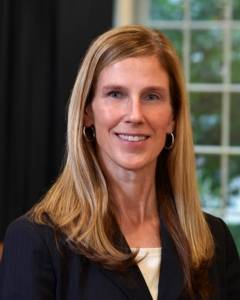Publications
A new state energy law will promote renewable energy, local tax revenues, environmental quality and economic development in New Hampshire. On June 15th, Governor Lynch signed House Bill 1758, relative to voluntary payment-in-lieu-of-tax (PILOT) agreements for renewable generation facilities. The new law allows a renewable generation facility and the municipality in which the facility is located to negotiate and enter into a voluntary agreement to make payments in lieu of local property taxes.
HB 1758 garnered the approval of legislators and the support of stakeholders for the following reasons:
- The bill enables voluntary PILOT agreements — there is no requirement for a municipality to enter into a PILOT agreement with a renewable generation facility. As such, the bill fosters local control.
- Renewable generation facilities are not getting a tax exemption under the bill — they must either pay the “normal” local property taxes pursuant to RSA 72 or make payments in lieu of such taxes pursuant to a PILOT agreement.
- All renewable facilities will pay the statewide utility property tax pursuant to RSA 83-F, regardless of whether or not they have a PILOT agreement.
- Municipalities will use the collection procedures in RSA 80, as necessary, to enforce a voluntary PILOT agreement.
- Voluntary PILOT agreements will help preserve the existing renewable generation resource base in the state, encourage new renewable facilities, promote environmental quality, and foster economic development at both the local and state level.
- Voluntary PILOT agreements will provide municipalities and renewable facilities with an important tool for avoiding costly and time-consuming efforts, including litigation, that are often required during the property tax assessment and appeals process. The assessment process can be especially challenging when municipal assessors are unfamiliar with the renewable generation industry. Voluntary PILOT agreements provide an administratively efficient means of reaching a mutually acceptable and amicable outcome.
- Voluntary PILOT agreements will provide municipalities and renewable facilities with flexibility in determining an appropriate payment stream for payments in lieu of taxes. For example, the payment amount could rise or fall over time to accommodate specific financial needs of the municipality and/or the facility; it could be calculated as a percent of a facility’s revenues, such that the municipality would enjoy a benefit when energy prices rise and the facility would see a lower tax obligation when its revenues fall; or the payment could be made monthly or quarterly, rather than annually, giving the municipality a steadier revenue stream.
HB 1758 is an important piece of legislation that will benefit many municipalities and renewable facilities throughout New Hampshire, as well as the state as a whole. A similar law was on the books for nearly two decades before it was repealed in 1997 in the context of electric restructuring. During this most recent legislative session, lawmakers recognized the merits of reinstating a new voluntary PILOT statute, and worked closely with renewable generation facilities and the New Hampshire Municipal Association to draft a clear and effective bill. Under the new law, PILOT agreements can apply to tax years commencing on or after April 1, 2006, and will be limited to durations of five years or less, with the option of renewing each agreement under identical or new terms and conditions.
In sum, HB 1758 is a valuable improvement to the state’s energy and tax policies, and provides a win-win-win scenario for the citizens, municipalities, and renewable generation facilities in New Hampshire. The new law can be found at http://www.gencourt.state.nh.us
/legislation/2006/HB1758.html starting at Chapter 294:5.
To learn more about how this new law can benefit your renewable generation facility or municipality, please contact Heidi Kroll at 603-228-1181.
